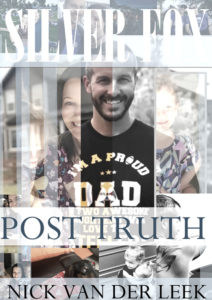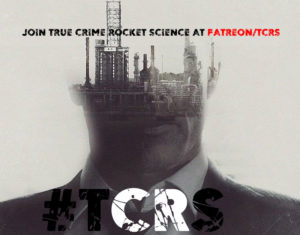
There’s a saying by Mark Tawin:
“A lie can travel halfway around the world while the truth is putting on its shoes.”
Let’s face it, mindfuckery is a tricky subject. It’s tricky to talk about because what you’re trying to do is convince someone their cognitive wiring might be a little wonky. And if you don’t start off this argument just right, you’re liable to lose not your argument but the suspicion may arise that you – the guy fielding the argument – might be touched in the head.
I suppose, to make this argument effectively one has to start by acknowledging – GASP – the possibility that human beings in general sometimes [often, actually] make mistakes.
So let’s take Einstein. Did one of the smartest people who ever lived ever make a thinking error?
Have we made any mistakes in our thinking about Einstein?
How about Stephen Hawking?

And Bill Gates?
The good news is when we acknowledge our mistakes, amazing things are allowed to happen. Take Steve Jobs:
Is it possible mistakes were made not just individually, but collectively in the Watts case? If so, what sort of thinking errors are we talking about? Well, here are a couple to choose from:
While a couple of these may apply, a handful look like they do.

Let’s deal briefly with just one before we deal with the statements in the documentary more specifically. It’s this one:

Essentially what the Appeal to Probability is saying is that because something is possible it’s probable. The law, for example, disagrees with that. In court something has to be probable, and reasonably probable absent other more or less probable possibilities, for it to be judged true.

There are many instances where things are possible – anything, theoretically is possible. But it’s this area that explains tricky, troubling and ongoing debates around, for example, did the world evolve or did God create it? Which is possible? Which is probable? Is climate change manmade or is it a myth? Which is possible? Which is probable?
There are many, many areas we can go into, and figuring out truth from fallacy using logic is both a fascinating and very in-depth area of cognitive psychology. A lot of true crime deals with our perceptions, and what we perceive. We won’t go into that here, but it’s a subject TCRS has covered at length in the past, and will continue to expose in SILVER FOX POST TRUTH, the final book in the SILVER FOX trilogy.

Now let’s deal with the documentary.






 On the one hand, the District Attorney and the Deputy District Attorney are the authorities closest to the case, so we’d expect thought leadership and clarity from them. Basically what they believe must be true. That same appeal to authority applies to CBI agent Tammy Lee. And yet invariably all three agree with the same faulty premise. Because the second version is worse, it must true.
On the one hand, the District Attorney and the Deputy District Attorney are the authorities closest to the case, so we’d expect thought leadership and clarity from them. Basically what they believe must be true. That same appeal to authority applies to CBI agent Tammy Lee. And yet invariably all three agree with the same faulty premise. Because the second version is worse, it must true.
There’s a very obvious problem with this premise, and it’s this:
There’s a third version that’s even worse than the second. Does that mean that premise is true? The DA and the agent – and the documentary – don’t even mention Watts’ version to Cadle.
We can also see how in Watts First Confession, where he said Shan’ann killed the kids and so he killed Shan’annn [a false idea deliberately offered to Watts by the investigators themselves] was a step closer to the truth, but also not true. It was true Watts had killed Shan’ann, but not true that she’d killed the children. And yet this same psychology of deception holds for how the interrogators got their pound of truth from Watts. They tempted him to give a little bit of truth by giving him “permission” to lie about – to minimize – his involvement. Stay with me here because it gets a little convoluted here. Watts is incentivized to take the bait because he is at least let off the hook of the child murders. But in taking the bait, he also admits the truth – the worse truth – that he killed Shan’ann.
If the psychology of “worse version trumps all” holds, then surely the worst version of all in terms of a global view of this case would be Shan’ann killing her own children, and then Watts killing her.
We must also bear in mind the same methodology of the First Confession was also used in the Second, which was to lead people-pleaser-Watts down the Yellow Brick Road of the confession. Coder – not interviewed here – did that.
What happened next, did this happen or that. That? Okay, what about this. Oh…
Significantly Watts didn’t volunteer his confession in either case [except he did in the Third Confession to Cadle] he was led to it. And he gave the version he thought his interrogators believed anyway. He gave the version, worse than the previous version, but still the minimal version he could get away with telling. What did he get in exchange? He was let off the hook in having to talk about it, first in terms of an even longer interrogation, then a trial, then more interrogation.
There is a worse version than the Second Version, by the way. The Second Version – an almost random, impulsive killing at the well site – is worse than the first, but it’s also better than the second. Why? Because the second version strips away the premeditation. A premeditated murder is an aggravated crime, it is criminal intent with deliberation. When this occurs a sentence is often the maximum sentence – as it was in this case.
Watts agreed in his plea deal to charges that included the words with deliberation [including of both children]. And yet his Second Confession, the one the prosecutors and agent now seem to say they accept, walks back that deliberation.

TCRS has exhaustively covered – and ridiculed – Watts bogus notions in the Second Confession that he alternatively “just snapped” and that he committed the crime “in a rage” without thinking. In fact TCRS predicted the “just snapped” minimization months before Watts came up with it.
“Chris Watts Just Snapped” – October 4th, 2018
The DA accepted his version of a cold, calculated murder and so did Watts. That’s why he signed the plea deal and didn’t object to this version mentioned during the sentencing on November 19th, 2018. Watts – in his last version [written in April 2019 and published in October 2019] – has also admitted he’d premeditated the murder for weeks, and made one or more attempts to poison Shan’ann to bring about a miscarriage.
So why would the DA and CBI Agent Tammy Lee go back on their own version, the one fielded in court?
To soothe popular opinion?
To engage popular opinion?
Maybe. Maybe one. Maybe both. Or maybe there is an even simpler meat-and-potatoes mindfuckery going on. It’s known as the appeal to ignorance, a very powerful and successful way of bullshitting the mainstream in the modern era. A bunch of YouTube channels thrive on this run-of-the-mill fallacy, as do MLMs. Evil, deception and dishonesty thrives in a culture of ignorance. And like or or not, in spite of or perhaps because of the information era, we live in a culture of ignorance.

Further Reading:
Chris Watts describes the reason he killed Shan’ann Watts: “I just snapped” [AUDIO Part 1+2] – March 2019
Chris Watts explains what made him snap – June 2019
“Like, he snapped” – Chris Watts Special Coming Soon on HLN – July, 2019
If there’s an innocent reason the authorities closest to this case believe what they do [and I’m not convinced there is, but who knows] it may be due to their being so close to the case that they’ve become emotionally compromised. We know that’s happened to the lead detective. Has it happened to anyone else. Have you been so afflicted by it you haven’t been able to think logically or scientifically about it?




Original Article:
Chris Watts case investigators are still reeling: ‘How does this happen?’ – NBC
Now, remember that saying by Twain?
“A lie can travel halfway around the world while the truth is putting on its shoes.”
It’s also been attributed to Churchill, Thomas Jefferson, Ann Landers and others. The quote itself isn’t even authentic, but derived from something similar written by Jonathan Swift [Irish poet, and author of Gulliver’s Travels]:
Falsehood flies, and truth comes limping after it.
Perhaps that’s why there are so many ums and TCRS is accused of being slow to get to the point. The truth takes time, it’s subtle, and complicated, and sensitive to distortions, misreadings and derivations. But coming back to Watts, think about the psychology of his storytelling. This idea that if something is worse it must be true, and we should accept it.
Now connect that psychology to the psychopathology of this crime. Connect that psychology of fear to the psychology of the introvert who wants to be well thought of, including in the context of a crime, including by his interrogators.
Chris Watts committed murder because he believed the pregnancy and divorce was “worse than I thought committing murders would be”, so I’d rather do that.
Makes sense now, doesn’t it?
























 On the one hand, the District Attorney and the Deputy District Attorney are the authorities closest to the case, so we’d expect thought leadership and clarity from them. Basically what they believe must be true. That same appeal to authority applies to CBI agent Tammy Lee. And yet invariably all three agree with the same faulty premise. Because the second version is worse, it must true.
On the one hand, the District Attorney and the Deputy District Attorney are the authorities closest to the case, so we’d expect thought leadership and clarity from them. Basically what they believe must be true. That same appeal to authority applies to CBI agent Tammy Lee. And yet invariably all three agree with the same faulty premise. Because the second version is worse, it must true.


































Recent Comments